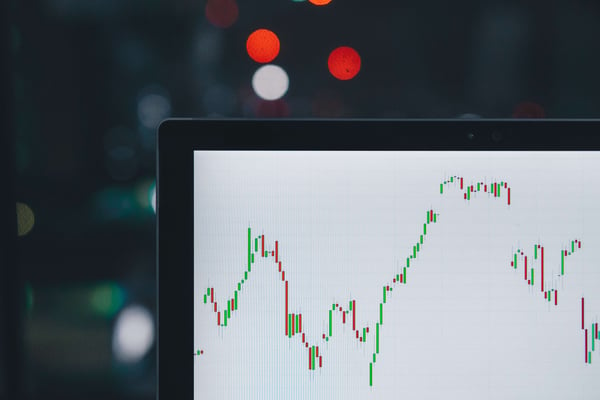
RELATED NEWS


Covid-19 Related Research in the field of Sociology and Anthropology
1 min read

Research in International Development and Global Studies on COVID-19
2 min read

Public and International Affairs Research on the Covid-19 Pandemic
1 min read
Current Psychological Projects and Research on COVID-19
A list of ongoing research in psychology related to COVID-19 by uOttawa professors and researchers
Andrea Ashbaugh
Led by Professor Ashbaugh, the research team at the Cognition and Anxiety Studies Laboratory at the School of Psychology is conducting a study examining the impact of moral decision making during the COVID-19 pandemic on people’s well-being.Tim Aubry & John Sylvestre
A study of the delivery of tele-mental health services to people with severe and persistent mental illness with a history of homelessnessThe study team partnered with a local community mental health organization that delivers a variety of psychosocial programs to people with severe mental illness and histories of homelessness or unstable housing. Due to public health restrictions implemented in response to the COVID-19 pandemic that limited in-person contact, the organization rapidly transitioned to providing their services via tele-mental health. To support their clients in the transition to tele-mental health services, the organization also provided mobile phones to clients. This study examined the perceptions of the phone handout program and the transition to tele-mental health services from the perspectives of mental health case managers and their clients, with a focus on perceived changes, benefits, challenges, and recommendations.
Telehealth group interventions for substance use and behavioural addictions in a community mental health setting during the COVID-19 pandemic
The study team partnered with a community mental health organization in Ottawa that provides services to support individuals with substance use and behavioural addictions and their loved ones. Many of their programs contain a group component. Due to public health restrictions related to the COVID-19 pandemic, it was no longer possible to provide these services in person and to continue to support their clients, the organization had to rapidly transition to virtual implementation of these groups and other services. This study examined the experience of virtual groups at Rideauwood Addictions and Family Services from the perspective of group facilitators and clients. The focus was on gaining an in-depth understanding of their perceptions of the logistical aspects of group implementation, the therapeutic relationship between facilitators and group members, the relationships among group members, group dynamics and cohesion, benefits, and challenges.
Jude Mary Cénat
The team at the Vulnerability, Trauma, Resilience and Culture Research Laboratory (V-TRaC), led by Professor Cénat, has adapted its psychological intervention guide, intended as support after the Ebola epidemic, to provide guidance during the COVID-19 pandemic.Psychological intervention guide: Intervening in the context of infections disease outbreaks
COVID-19 and Preventive Attitudes: A Cross-Analysis of Risk and Protective Factors in Health Systems in Haiti, Democratic Republic of Congo, Rwanda, Togo, Bangladesh, and Pakistan
Based on a global health perspective, this project aims to (1) analyze the status of COVID-19 pandemic surveillance and epidemiological watch measures in six low-and-middle-income countries (LMICs): Haiti, Rwanda, Democratic Republic of Congo, Togo, Bangladesh, and Pakistan; and (2) examine risk and protective factors related to preventive attitudes among the populations of the six LMICs.
Results:
Frequency and correlates of anxiety symptoms during the COVID-19 pandemic in low-and middle-income countries: A multinational study
Prevalence and correlates of depression during the COVID-19 pandemic and the major role of stigmatization in low- and middle-income countries: A multinational cross-sectional study
Health Communication, Sociocultural Diversity, and COVID-19
The COVID-19 pandemic has led to countries worldwide adopting measures such as social distancing, the closing of schools and businesses, and limited access to public spaces. Psychiatrist Dr. Cécile Rousseau, along with collaborators from Concordia University and the University of Ottawa, will conduct surveys and interviews with 4,000 Quebecers to understand how minority status, low socioeconomic status, discrimination/stigmatisation, and mental health affect understanding and adoption of COVID-19 public health measures.
Results:
Ethno-cultural disparities in mental health during the COVID-19 pandemic: a cross-sectional study on the impact of exposure to the virus and COVID-19-related discrimination and stigma on mental health across ethno-cultural groups in Quebec (Canada)
Spotlight: Mental health during a pandemic: a guide to dealing with the effects of a silent crisis
Real-life impacts: Together for Hope and Resilience: A Humanistic Experience by the Vulnerability, Trauma, Resilience and Culture Lab Members during the COVID-19 Pandemic
Christopher Fennell
Professor Fennell, director of the Language Development Laboratory, is conducting a study in collaboration with an international team to examine the effect of the COVID-19 lockdown on language development in infants and young toddlers. Decades of research have shown that increased exposure to parental speech advances early language development while increased exposure to screens has negative effects. In this unique modern period where parents and young children spending all their time together, will we see a vocabulary surge due to increased parental contact?Study: Social isolation due to COVID-19 and vocabulary development: Insights from families with varying social backgrounds
COVID-19 first lockdown as a unique window into language acquisition: What you do(with your child) matters
Cary Kogan
Longitudinal impact of COVID-19 on clinical practice and well-being of global mental health professionalsThis CIHR-funded study, led by Professor Kogan and his partners at Columbia University (Professor G. Reed) and the Canadian Institute for Health Information (Dr. K. Denny), is a large international collaborative investigation that will assess the longitudinal impact of the COVID-19 pandemic on mental health practitioners and mental health practice. Emerging data document the immediate consequences of confronting the COVID-19 pandemic on health professionals, which may include anxiety, depression, insomnia, and overall distress including fear of contracting COVID-19 and infecting others. A detailed survey will be implemented in six languages through the World Health Organisation's (WHO) Global Clinical Practice Network (GCPN). The GCPN is the largest, most diverse international practice-based research network ever established, comprising over 15,500 clinicians from 159 countries.
Register for GCP.Network
Rébecca Robillard
On April 3rd 2020, a group of 20 scientists from eight hospitals across Ontario and Quebec, led by Professor Rébecca Robillard, launched an exhaustive longitudinal online survey assessing the financial, social and psychological impacts of COVID-19 at different stages of the outbreak. In addition to monitoring the general population, targeted questions are included for critical populations such as healthcare workers and people with chronic physical or mental illnesses. Participants also have the option of linking their survey information to provincial health administrative data and to social media activity for mood monitoring through artificial intelligence algorithms.Study: How are you coping during COVID-19?
The Ottawa Aboriginal Coalition is partnering with other scientists, namely uOttawa's Rébecca Robillard, to evaluate longitudinal changes in health outcomes during this pandemic, and investigate how sociocultural factors may modulate the multifaceted impacts of this pandemic on Indigenous health. This pandemic has caused profound societal disruptions with downstream impacts on mental and physical health, and serious concerns have been raised about disproportionate impacts on Indigenous communities. In Canada, rates of COVID-19 infections within Indigenous communities recently underwent sharp increases. How this will continue to evolve, and the collateral effects of the pandemic on other mental and physical health conditions, will undoubtedly be influenced by a range of social, cultural and economic factors.
Developing a culturally safe public health response to COVID-19 with First Nation
The aim of this research is to understand how the Algonquins of Pikwàkanagàn ways of knowing can inform public health responses at local, provincial, federal and global levels, to mitigate the negative impacts of COVID-19 and maximize the health of Indigenous Peoples. The team, lead by Wendy Gifford from the Faculty of Health Sciences, includes an Algonquin First Nations Knowledge Keeper of traditional ways of knowing and practices, a health and social services supervisor within Pikwàkanagàn First Nation, and an Indigenous scholar from the First Nation with expertise in public health policy and sex and gender. Their knowledge translation plan involves the use of short video as part of a documentary film in addition to disseminating summaries to Indigenous health forums, provincial and national health agencies and ministries. Deliverables can inform Indigenous and non-Indigenous governments and community members re-evaluate their own disaster mitigation approaches in pandemics or for future threats.
Krystelle Shaughnessy
Professor Shaughnessy and the Individual and Social Influences of Technology (INSITE) Lab at the University of Ottawa are conducting a study to learn how people use new technologies to connect with others during the COVID-19 pandemic. This research will help improve knowledge about technology use and its impact during the pandemic.By Collabzium
Also Read